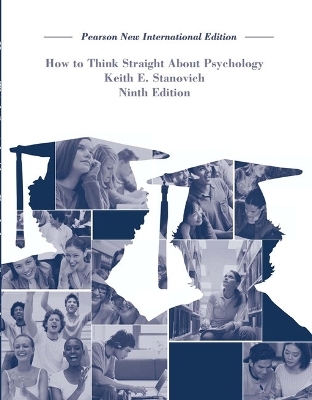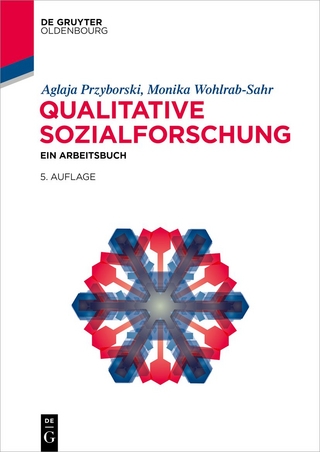
How To Think Straight About Psychology
Pearson Education Limited (Verlag)
978-1-292-02310-6 (ISBN)
1. Psychology Is Alive and Well (and Doing Fine Among the Sciences)
The Freud Problem
The Diversity of Modern Psychology
Implications of Diversity
Unity in Science
What, Then, Is Science?
Systematic Empiricism
Publicly Verifiable Knowledge: Replication and Peer Review
Empirically Solvable Problems: Scientists’ Search for Testable Theories
Psychology and Folk Wisdom: The Problem with “Common Sense”
Psychology as a Young Science
Summary
2. Falsifiability: How to Foil Little Green Men in the Head
Theories and the Falsifiability Criterion
The Theory of Knocking Rhythms
Freud and Falsifiability
The Little Green Men
Not All Confirmations Are Equal
Falsifiability and Folk Wisdom
The Freedom to Admit a Mistake
Thoughts Are Cheap
Errors in Science: Getting Closer to the Truth
Summary
3. Operationism and Essentialism: “But, Doctor, What Does It Really Mean?”
Why Scientists Are Not Essentialists
Essentialists Like to Argue About the Meaning of Words
Operationists Link Concepts to Observable Events
Reliability and Validity
Direct and Indirect Operational Definitions
Scientific Concepts Evolve
Operational Definitions in Psychology
Operationism as a Humanizing Force
Essentialist Questions and the Misunderstanding of Psychology
Operationism and the Phrasing of Psychological Questions
Summary
4. Testimonials and Case Study Evidence: Placebo Effects and the Amazing Randi
The Place of the Case Study
Why Testimonials Are Worthless: Placebo Effects
The “Vividness” Problem
The Overwhelming Impact of the Single Case
The Amazing Randi: Fighting Fire with Fire
Testimonials Open the Door to Pseudoscience
Summary
5. Correlation and Causation: Birth Control by the Toaster Method
The Third-Variable Problem: Goldberger and Pellagra
Why Goldberger’s Evidence Was Better
The Directionality Problem
Selection Bias
Summary
6. Getting Things Under Control: The Case of Clever Hans
Snow and Cholera
Comparison, Control, and Manipulation
Random Assignment in Conjunction with Manipulation Defines the True Experiment
The Importance of Control Groups
The Case of Clever Hans, the Wonder Horse
Clever Hans in the 1990s
Prying Variables Apart: Special Conditions
Intuitive Physics
Intuitive Psychology
Summary
7. “But It’s Not Real Life!”: The “Artificiality” Criticism and Psychology
Why Natural Isn’t Always Necessary
The “Random Sample” Confusion
The Random Assignment Versus Random Sample Distinction
Theory-Driven Research Versus Direct Applications
Applications of Psychological Theory
The “College Sophomore” Problem
The Real-Life and College Sophomore Problems in Perspective
Summary
8. Avoiding the Einstein Syndrome: The Importance of Converging Evidence
The Connectivity Principle
A Consumer’s Rule: Beware of Violations of Connectivity
The “Great-Leap” Model Versus the Gradual-Synthesis Model
Converging Evidence: Progress Despite Flaws
Converging Evidence in Psychology
Scientific Conse
| Erscheint lt. Verlag | 6.8.2013 |
|---|---|
| Verlagsort | Harlow |
| Sprache | englisch |
| Maße | 216 x 272 mm |
| Gewicht | 520 g |
| Themenwelt | Geisteswissenschaften ► Psychologie |
| Sozialwissenschaften ► Soziologie ► Empirische Sozialforschung | |
| ISBN-10 | 1-292-02310-4 / 1292023104 |
| ISBN-13 | 978-1-292-02310-6 / 9781292023106 |
| Zustand | Neuware |
| Haben Sie eine Frage zum Produkt? |
aus dem Bereich


